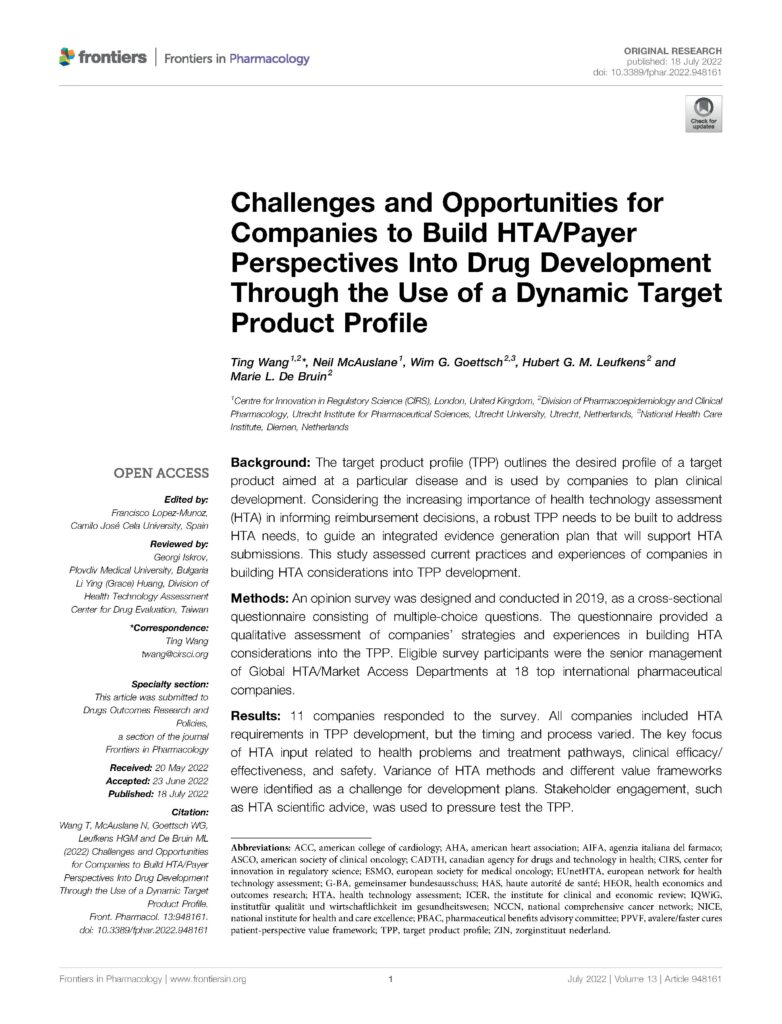Background: The target product profile (TPP) outlines the desired profile of a target product aimed at a particular disease and is used by companies to plan clinical development. Considering the increasing importance of health technology assessment (HTA) in informing reimbursement decisions, a robust TPP needs to be built to address HTA needs, to guide an integrated evidence generation plan that will support HTA submissions. This study assessed current practices and experiences of companies in building HTA considerations into TPP development.
Methods: An opinion survey was designed and conducted in 2019, as a cross-sectional questionnaire consisting of multiple-choice questions. The questionnaire provided a qualitative assessment of companies’ strategies and experiences in building HTA considerations into the TPP. Eligible survey participants were the senior management of Global HTA/Market Access Departments at 18 top international pharmaceutical companies.
Results: 11 companies responded to the survey. All companies included HTA requirements in TPP development, but the timing and process varied. The key focus of HTA input related to health problems and treatment pathways, clinical efficacy/effectiveness, and safety. Variance of HTA methods and different value frameworks were identified as a challenge for development plans. Stakeholder engagement, such as HTA scientific advice, was used to pressure test the TPP.
Conclusion: This research provides insight into current practice and potential opportunities for value-based drug development. It demonstrates the evolution of the TPP to encompass HTA requirements and suggests that the TPP could have a role as an iterative communication tool for use with HTA agencies to enhance an integrated evidence generation plan.
Wang T, McAuslane N, Goettsch WG, Leufkens HGM and De Bruin ML (2022) Challenges and Opportunities for Companies to Build HTA/Payer Perspectives Into Drug Development Through the Use of a Dynamic Target Product Profile. Front. Pharmacol. 13:948161. doi: 10.3389/fphar.2022.948161

